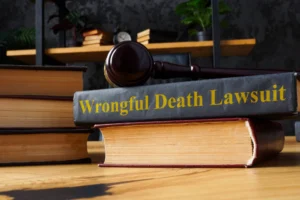For commercial drivers, retaining their Commercial Driver’s License (CDL) after a DWI arrest is critical, not just for your career but for your livelihood. Given the high stakes, navigating the ALR process effectively and avoiding an automatic suspension is essential.
The ALR process is a civil procedure separate from the criminal charges associated with a DWI, focusing solely on whether your license will be suspended. The outcome of this hearing can have serious consequences for CDL holders, making it essential to understand the factors that can influence the chances of winning, and do everything you can to help your case.
In this article, Javier Guzman of Guzman Law Firm will discuss the main factors affecting your chances of winning an ALR hearing in Texas, answer common questions related to the process, and provide guidance on preparing effectively.
Keep reading to find out everything you need to know about ALR hearings in Texas, or, if you are a CDL holder facing license suspension from a DWI conviction, call Guzman Law Firm at 956-516-7198 to get the representation you deserve.
What factors affect your chances of winning an ALR hearing in Texas?
There are innumerable factors that influence the ultimate outcome of your ALR hearing, but we’ve broken them down into five primary factors.
1. Timeliness of your response
The ALR process in Texas is time-sensitive, and your chances of winning can be affected by how quickly you take action after your arrest. You have only 15 days from the date of your arrest to request an ALR hearing, and failing to do so will result in an automatic suspension of your license.
Additionally, preparing for the hearing requires time to gather evidence, consult with an attorney, and develop a defense strategy. The sooner you begin this process, the more likely you’ll be able to reinstate your Texas driver’s license.
2. Evidence and documentation of the case
The evidence presented at an ALR hearing can make or break your case. This includes the results of any breathalyzer or blood tests, the arresting officer’s testimony, and any other documentation related to the traffic stop and subsequent arrest. The accuracy and reliability of this evidence are both key factors.
For instance, if there were issues with the calibration of the breathalyzer or if the blood sample was not handled correctly, your attorney might be able to challenge the validity of the evidence. Additionally, if there is video evidence from the police vehicle’s dashcam or bodycam footage that contradicts the officer’s account, it can be a powerful tool in your defense.
3. The arresting officer’s testimony
The arresting officer’s testimony plays a significant role in the ALR hearing. Whether it’s your first DWI offense in Texas or you’re looking at a third, the officer must demonstrate that they had reasonable suspicion to stop your vehicle and probable cause to arrest you. If the officer’s testimony is inconsistent or if they fail to provide clear and convincing evidence of these points, it can weaken the case against you.
That said, it’s essential to be prepared for the possibility that the officer will attend and be ready to challenge their statements effectively.
4. The arresting officer’s procedural compliance
Texas law requires that certain procedures be followed during a DWI arrest, and any deviation from these procedures can impact the outcome of your ALR hearing. For example, the arresting officer must inform you of your rights, including the consequences of refusing a breath or blood test.
If the officer failed to provide this information or if they violated any other legal procedures during the arrest, your attorney could argue that your license should not be suspended. Procedural errors can be particularly relevant for CDL holders, who are subject to more stringent regulations than regular drivers.
5. Quality of legal representation
One of the most crucial factors in determining the outcome of an ALR hearing is the quality of your legal representation. An experienced attorney who understands the intricacies of Texas ALR hearings can significantly improve your chances of retaining your license. They can scrutinize the evidence, cross-examine the arresting officer, and identify any procedural errors that might work in your favor.
For those with a Texas CDL permit, having an attorney who is well-versed in both DWI law and commercial driving regulations is particularly important. They can craft a defense strategy that addresses the unique challenges faced by CDL holders, such as the stricter blood alcohol concentration (BAC) limits and the higher standards of conduct expected from professional drivers.
Texas ALR hearing questions to help you prepare
How long does it take to get an ALR hearing in Texas?
Once you request an ALR hearing, the Texas Department of Public Safety (DPS) will schedule it within 40 days of the request. The hearing itself is typically held at the State Office of Administrative Hearings (SOAH) and can take anywhere from a few minutes to a few hours, depending on the complexity of the case and the amount of evidence presented.
For CDL holders, it is crucial to use this time wisely to gather all necessary documentation and consult with your attorney. The time between the request and the hearing date is your opportunity to build a solid defense, so it’s important to act quickly and efficiently.
What does ALR suspension failure mean in Texas?
An ALR suspension failure means that the administrative judge ruled against you, and your license will be suspended as a result. For CDL holders, this can have particularly severe consequences, as a suspension not only affects your ability to drive commercially but can also lead to job loss or difficulty finding future employment.
However, a suspension is not necessarily the end of the road. Depending on the circumstances, you may have the option to appeal the decision or seek an occupational license that allows you to drive under specific conditions. It’s important to consult with your attorney to explore all available options and to understand the full implications of the Texas CDL suspension system.
Wondering how to win an ALR hearing in Texas? Contact Guzman Law Firm today.
Getting an ALR hearing dismissed can be daunting, especially for CDL holders who have so much at stake. The factors discussed in this article — quality legal representation, strong evidence, effective cross-examination, procedural compliance, and timely action — are all critical to improving your chances of winning an ALR hearing in Texas.
At Guzman Law Firm, we understand the unique challenges faced by commercial drivers and are dedicated to helping you protect your license and your career. With a deep understanding of Texas DWI laws and the ALR process, Javier Guzman is the DWI defense lawyer Laredo residents trust. If you are facing an ALR hearing in Texas, don’t leave your future to chance. Contact Guzman Law Firm today to schedule a consultation and start building your defense.
More Helpful Articles by Guzman Law Firm:





